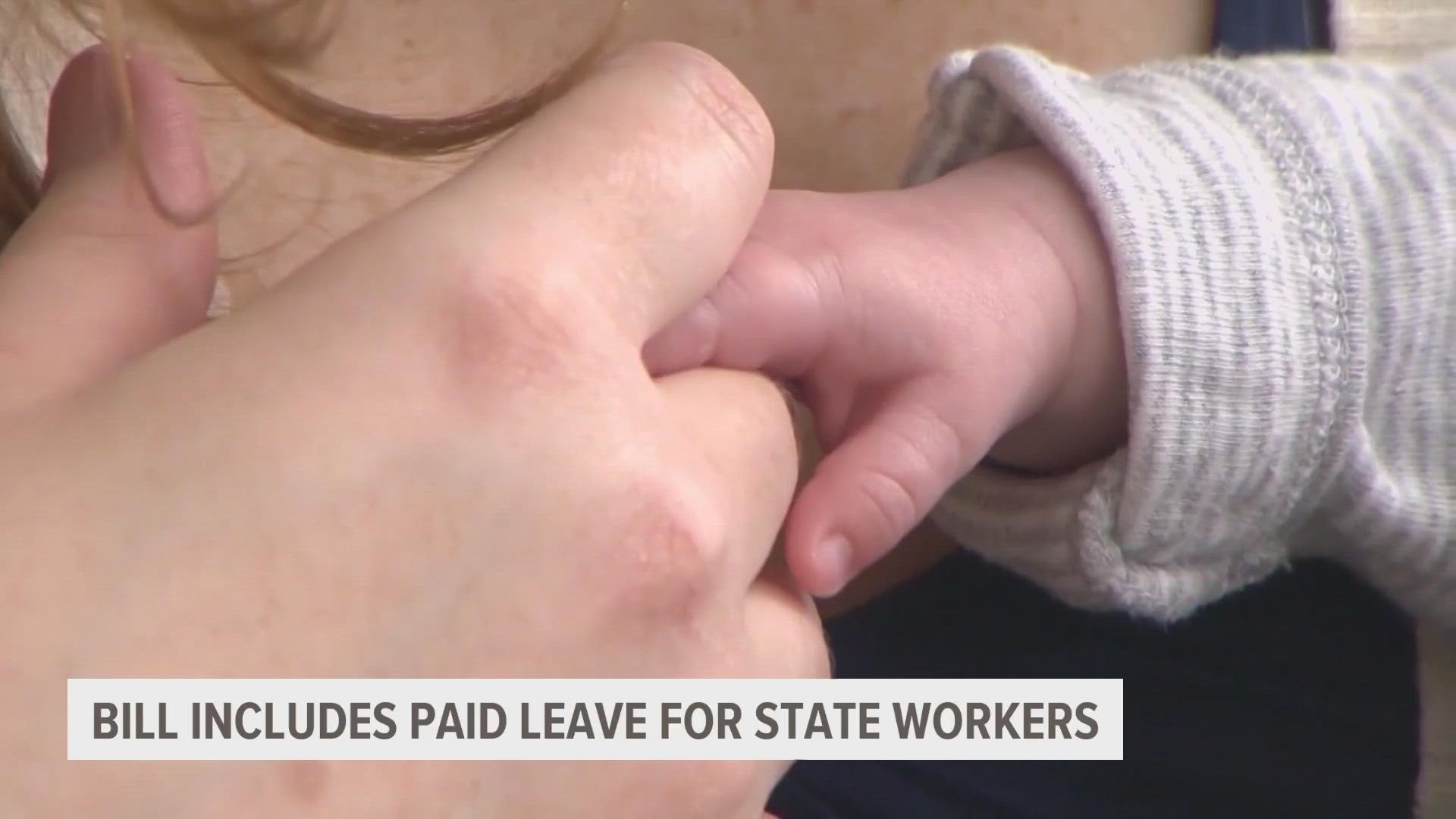DES MOINES, Iowa — Iowa lawmakers are considering a bill that tackles priorities laid out by Gov. Kim Reynolds. Senate Study Bill 1139 aims at boosting maternal and family health.
The Senate Health and Human Services Committee pushed forward the measure on Tuesday.
The discussion focused on paid parental leave. Under the measure, state employees who give birth to or adopt a child would receive four weeks of paid leave, while their supportive partner would receive one week.
"When you look at the research, six weeks is when you really start to see some of the benefits in terms of maternal mental health, in terms of return to workforce as well as parent child interaction," said Mary Nell with Iowa ACES 360. "Many childcare centers don't accept infants before six weeks, and that's particularly important in Iowa, where we have the highest rate of having all parents of a household in the workforce."
While the House version of this bill contains expanded access to contraceptives, the Senate version does not.
"The American Journal of Public Health did a study from 2008 to 2014 and showed that abortion rates decreased by 25%," said Angela Caulk with the Family Planning Council of Iowa. "This decrease was largely attributed to an increase in contraception access."
The bill would also allocate $2 million to the MOMS program, which was first created last session.
Supporters of the statewide program say it helps promote healthy pregnancies through nonprofits, which can offer women support, education and counseling. But Planned Parenthood Advocates of Iowa believes these centers are unregulated and misrepresent themselves as legitimate medical providers.
"Their goal is to dissuade people from obtaining an abortion, often by providing misinformation that is meant to scare or shame them. From calling up patients family members to inform them of an intent to terminate a pregnancy, to misdiagnosing a deadly ectopic pregnancy as healthy and viable," said PPAI Director of Public Affairs Mazie Stilwell.
Last year the state allocated $500,000 to the MOMS program. At the subcommittee meeting, a HHS representative confirmed none of that funding has been spent on direct services at this time.

